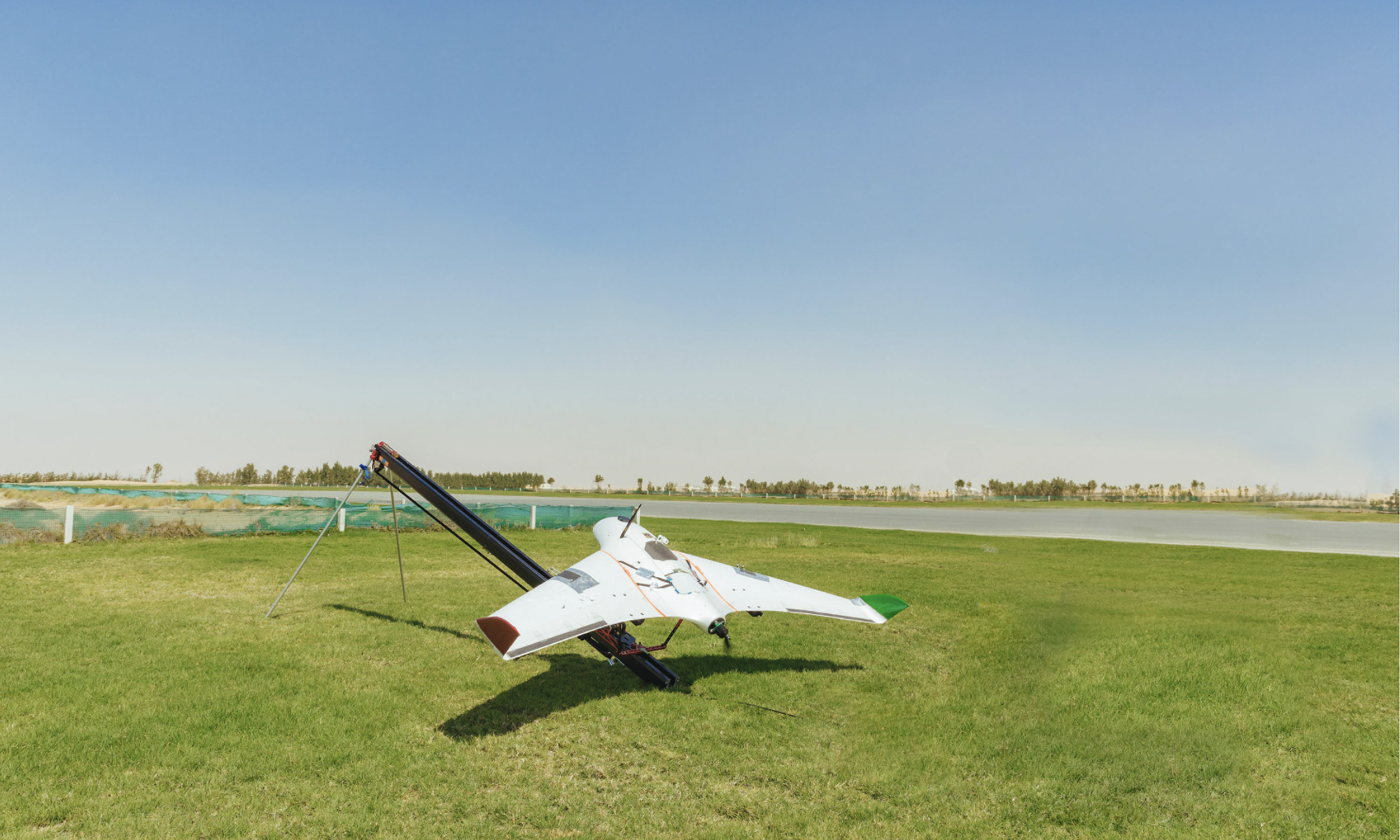News
UAE To Unleash Hordes Of Cloud-Triggering Drones

The United Arab Emirates (UAE) has a massive problem with a limited supply of rainwater. With an average rainfall of just 100 mm per year, the constitutional monarchy is ranked among the most water-stressed countries in the world.
For years now, the country’s government has been investing heavily in various cloud-seeding missions aimed to increase the annual rainfall. For example, the UAE has been relatively successfully triggering rain by firing salt particles into clouds from airplanes to make individual water particles heavier and more likely to punch holes in the clouds.

National Centre Of Meteorology & Seismology
Now, UAE scientists have partnered with their colleagues from the University of Reading, England, to make it rain more in the parched country by literary giving clouds electric shocks.
“Equipped with a payload of electric charge-emitting instruments and custom sensors, these drones will fly at low altitudes and provide an electric charge to air molecules, which should stimulate precipitation,” explains Alya Al-Mazroui, the Director of the UAE Research Program for Rain Enhancement Science.
By deploying an electric current with negative and positive ions, the drones will basically attempt to recreate the natural phenomenon that causes dry hair to be attracted to a plastic comb. Since particles with opposite charges attract each other, the electricity unleashing drones should theoretically cause small droplets of water to merge into more subscription cloud formations and eventually lead to rain.
Also Read: Amazon Is Planning To Create Over 1,500 Jobs In Saudi Arabia
“Our project aims to evaluate the importance of charge in affecting the cloud droplet size distribution and rainfall generation through modifying the behavior of droplets and particles and studying the microphysical and electric properties of fog events,” says Professor Giles Harrison, a Professor of Atmospheric Physics in the Department of Meteorology at the University of Reading.
The effectiveness and safety of various cloud-seeding practices, including those explored by the UAE, are still debated by scientists. Concerns have been raised about their geopolitical implications, with wealthy, technologically advanced countries potentially “stealing” rainwater that would otherwise naturally end up in poorer countries.
News
Rabbit Expands Hyperlocal Delivery Service In Saudi Arabia
The e-commerce startup is aiming to tap into the Kingdom’s underdeveloped e-grocery sector with a tech-first, locally rooted strategy.

Rabbit, an Egyptian-born hyperlocal e-commerce startup, is expanding into the Saudi Arabian market, setting its sights on delivering 20 million items across major cities by 2026.
The company, founded in 2021, is already operational in the Kingdom, with its regional headquarters now open in Riyadh and an established network of strategically located fulfillment centers — commonly known as “dark stores” — across the capital.
The timing is strategic: Saudi Arabia’s online grocery transactions currently sit at 1.3%, notably behind the UAE (5.3%) and the United States (4.8%). With the Kingdom’s food and grocery market estimated at $60 billion, even a modest increase in online adoption could create a multi-billion-dollar opportunity.
Rabbit also sees a clear alignment between its business goals and Saudi Arabia’s Vision 2030, which aims to boost retail sector innovation, support small and medium-sized enterprises, attract foreign investment, and develop a robust digital economy.
The company’s e-commerce model is based on speed and efficiency. Delivery of anything from groceries and snacks to cosmetics and household staples is promised in 20 minutes or less, facilitated by a tightly optimized logistics system — a crucial component in a sector where profit margins and delivery expectations are razor-thin.
Despite the challenges, Rabbit has already found its stride in Egypt. In just over three years, the app has been used by 1.4 million customers to deliver more than 40 million items. Revenue has surged, growing more than eightfold in the past two years alone.
Also Read: Top E-Commerce Websites In The Middle East In 2025
CEO and Co-Founder Ahmad Yousry commented: “We are delighted to announce Rabbit’s expansion into the Kingdom. We pride ourselves on being a hyperlocal company, bringing our bleeding-edge tech and experience to transform the grocery shopping experience for Saudi households, and delivering the best products – especially local favorites, in just 20 minutes”.
The company’s growth strategy avoids the pitfalls of over-reliance on aggressive discounting. Instead, Rabbit leans on operational efficiency, customer retention, and smart scaling. The approach is paying off, having already attracted major investment from the likes of Lorax Capital Partners, Global Ventures, Raed Ventures, and Beltone Venture Capital, alongside earlier investors such as Global Founders Capital, Goodwater Capital, and Hub71.
























